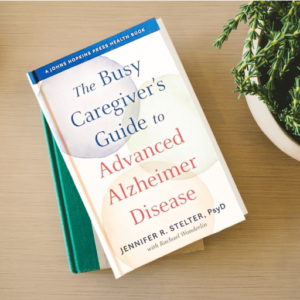Is It Ok for People With Dementia to Primarily Drink Supplements?
Ponder this question…if you could only drink your meals for the rest of your life, would you want to? I think hardly not. It’s not a way of life…it’s not quality of life. However, it’s up to each person; it’s their right to decide this. But we know that when people are progressing in their disease of dementia, when their ability to eat decompensates, that choice becomes compromised. Or does it?
A quality dining program offered at home or within a community allows choice to be available. Choice is possible when using the Dementia Connection Model©, an empirically-validated cognitive behavioral framework. This model’s main approach includes using sensory stimulation.
When a person with dementia is stimulated using their senses, that information is processed either directly or indirectly in the limbic system of their brain that houses the amygdala (feelings) and hippocampus (memories). Therefore, positive stimuli should be used to promote positive feelings and memories, this then promotes positive behavioral expressions. And when the caregiver is the one providing these positive experiences, the person with dementia will either connect or re-connect with them because they like how they feel with that person.
Therefore, when various stimuli are used within a dining program, these will either influence positive or negative feelings for that person. They will then know what their choice is, innately. Then, the caregiver can observe their reactions and continue to provide more of what they like. Whether that’s particular food they like, colors of plateware they are attracted to, music they want to hear during meals, smells they enjoy, and more.
In 2016, I conducted a focus group with a memory care assisting living community in the midwest, who were looking to improve their dining experience for their residents. With challenges of weight loss and an increasing need for supplemental use, running up costs for the families, they knew something needed to be done. The focus group ran for three months with this given prescriptive engagement plan used at each meal: aromatherapy (olfactory stimulation), music (auditory stimulation), and colored plates (visual stimulation). The aromatherapy and music were started 30 minutes prior to each meal, and colored plateware was used based on the needs of the individual. Purees were served in bowls to make it look like soup (visual stimulation), and therapy assisted with any adaptable equipment needed (tactile stimulation). Results showed promising results:
- 46% of residents increased their food consumption
- 54% of residents gained or maintained weight
- 72% decrease in supplemental use
And after 30 days, residents, who could but weren’t before, were wheeling themselves independently to the dining room on their own, as they were able to learn what the scent and sound meant – “It’s time to eat!”. This allowed residents to practice their own navigation skills and provide them with a form of physical activity, on top of gaining back their independence. It also allowed staff to just focus on the residents who really needed help, freeing up their time to be used in a more productive manner.
All-in-all, choice is possible from an organic process that happens in our brain when using the Dementia Connection Model. At the Dementia Connection Institute, we are always striving to educate caregivers and professionals to fill their toolbox with lots of tools to be prepared when caring for those living with dementia. When caregivers are educated and prepared, this allows those living with dementia to live freely in their new world, without judgment, controls, and negativity.
Learn hands-on about the Dementia Connection Model to enhance your skills in communication, ADL care, engagement, behavioral management, environmental design, and much more in our new dementia certification programs. Become certified as a Dementia Connection Specialist (DCS) or Dementia Connection Specialist Certified Trainer (DCSCT)! Now offering virtual and in-person seminars. Learn more.




